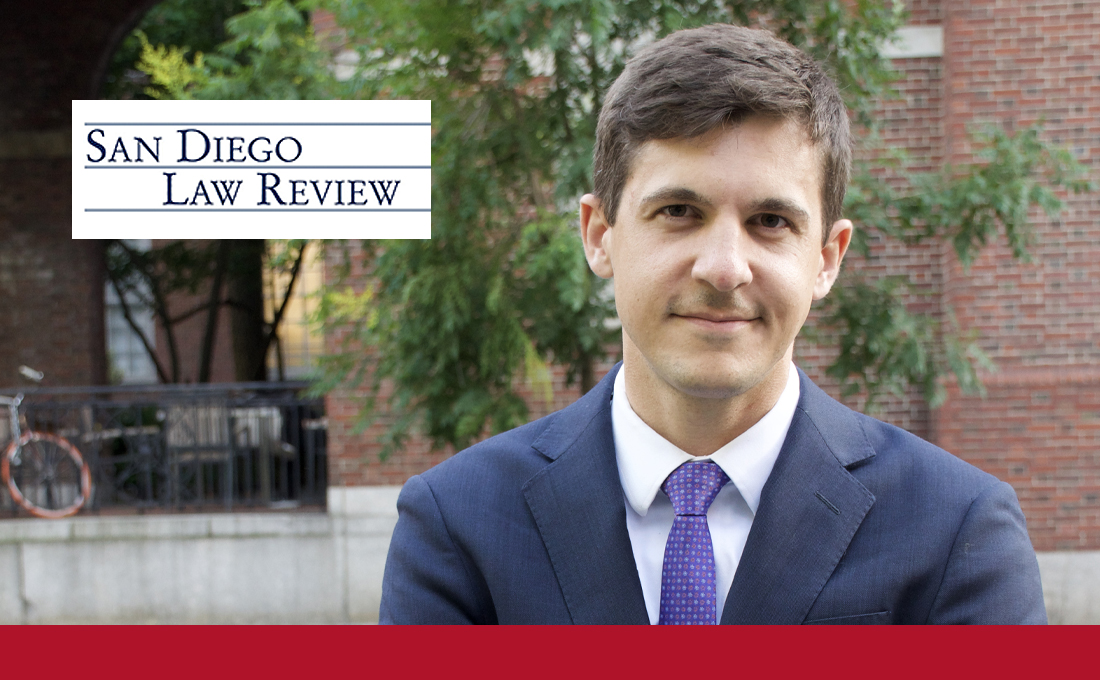Professor Jon Endean’s Research Questions Legality of Tariffs Imposed Under IEEPA

As President Trump prepares to defend his right to unilaterally impose tariffs in front of the Supreme Court in November, Professor Jon Endean has published research forthcoming in the San Diego Law Review that seeks to understand a core aspect of this dispute: whether the President possesses that power pursuant to a delegation of the power to impose tariffs under the International Emergency Economic Powers Act, or IEEPA. Endean’s research concludes that Congress did not delegate that power to the president.
Endean, whose scholarly research focuses on tax law, outlines in the article a framework for understanding congressional delegations related to the power to tax. He writes that inherent in the Constitution’s taxing power are two core values that have their root in the development of structural constraints on the taxing power in Feudal England and are reflected in the text of the Constitution itself. The first is the recognition that the “taxing power is not merely first in a list of enumerated powers, but separate and distinct.” The second is the recognition that the taxing power exclusively belongs to Congress, and that “taxes cannot be imposed without the consent of the governed.” Endean proposes a structural canon that would apply these principles in the context of purported delegations of the taxing power: “a law that the President claims delegates the authority to tax must reflect the fact that Congress knew it was consenting to the exercise of the taxing power through such law.”
Regarding tariffs imposed under IEEPA, Endean explains:
IEEPA is an exercise of Congress’ authority under the Commerce Clause: It was designed to delegate that authority to the President when the country is faced with “unusual and extraordinary threats” that require quick action by the President. But while Congress often will exercise its taxing power in service of regulating interstate and foreign commerce, it chose not to offer that particular tool to the executive branch when enacting IEEPA. . . . Congress could have listed the ability to impose duties or tariffs on imports as one of the powers available to the President under IEEPA. But by not doing so, the clear statement rule proposed by this Article demonstrates that tariffs imposed under IEEPA are unlawful.
Endean’s work was supported by the Dean’s Summer Research Stipend Program at Brooklyn Law School.
Citation: Jon Endean, Tariffs as Taxes: A Framework for Understanding Delegation of the Taxing Power, 63 San Diego L. Rev. __ (forthcoming 2026), available at https://ssrn.com/abstract=5421134.